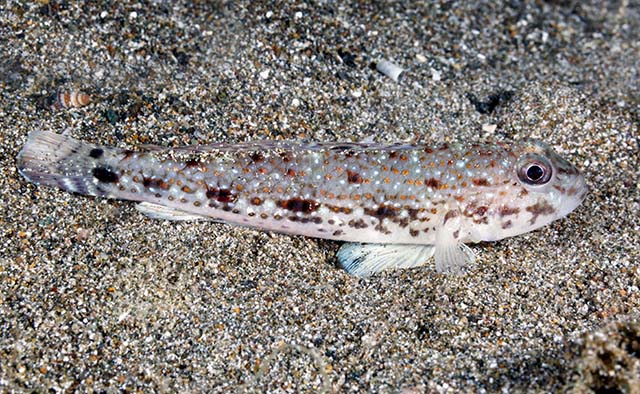| Gobiidae (Gobies), subfamily: Gobiinae |
| 7.5 cm SL (male/unsexed) |
|
reef-associated; marine; depth range 1 - 66 m |
| Indo-West Pacific: Maldives. Also reported from New Caledonia (Ref. 11889). |
|
Dorsal spines (total): 6-7; Dorsal soft rays (total): 10-10; Anal spines: 1-1; Anal soft rays: 10-10. Characterized by pale grey body color with numerous small white dots and larger brown spots on head and body; row of four large ovate blotches along side at level of pectoral fin base; base of caudal fin with additional spot; united pelvic fins, well developed frenum present; rounded caudal fin, slightly shorter than HL; longitudinal scale series 28-29; ctenoid scales on body and nape; cycloid scales on prepectoral area, breast, cheek and opercle; predorsal scales about 12; 1-2 small spines on preopercular margin just above angle; depth of body 4.2-4.7 in SL (Ref. 90102). |
| Inhabits coastal sand and mud flats, mainly in deepest parts of estuaries and at moderate depth, about 20 meters, in coastal bays (Ref. 48637). |
|
Least Concern (LC); Date assessed: 17 August 2023 Ref. (130435)
|
| harmless |
Source and more info: www.fishbase.org. For personal, classroom, and other internal use only. Not for publication.
